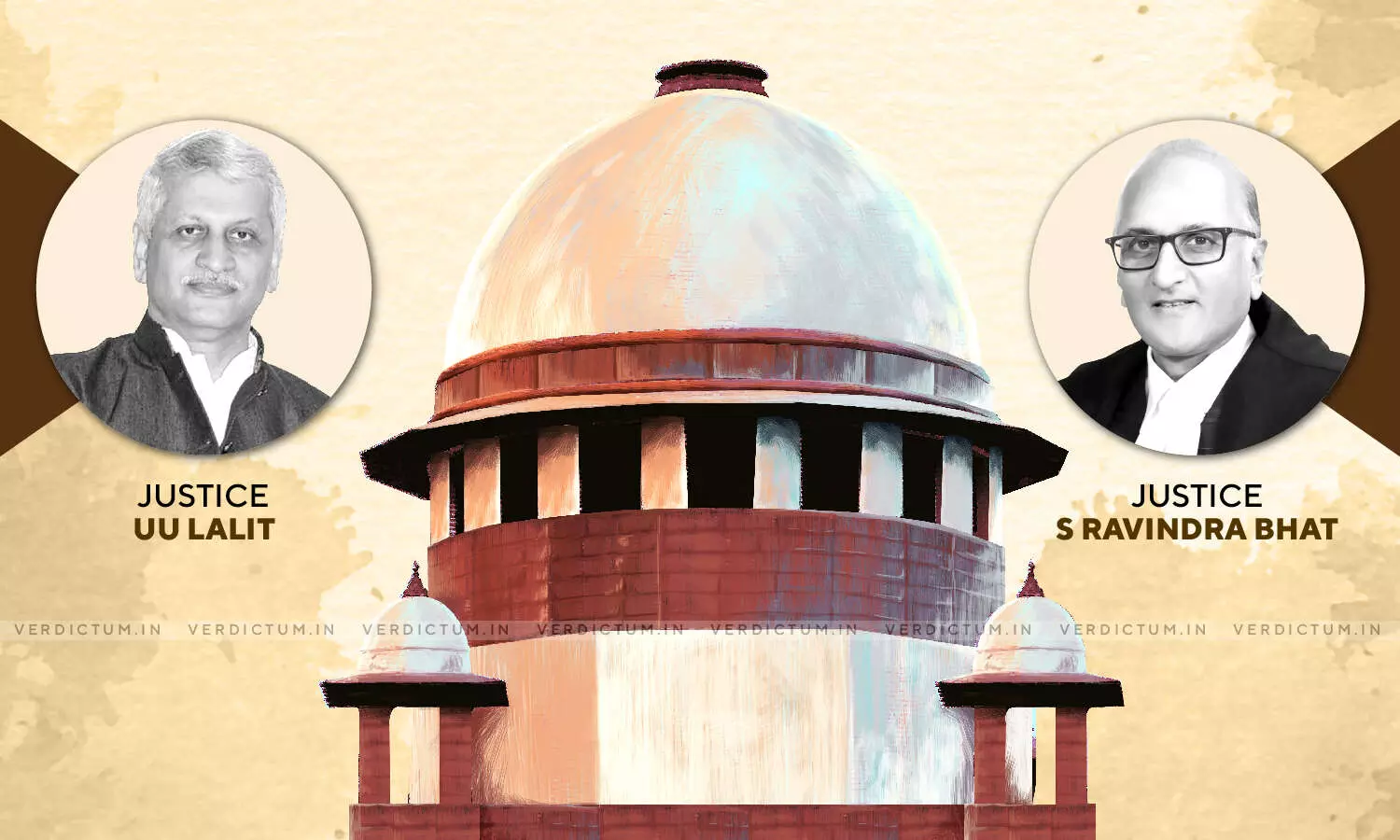
Pharma Companies Gifting Freebies To Doctors Cannot Be Claimed As Deduction U/s. 37(1) Of Income Tax Act - SC
 |
|A two-judge bench of the Supreme Court comprising of Justice U.U. Lalit and Justice S. Ravindra Bhat has observed that pharmaceutical companies gifting freebies to doctors etc. was clearly "prohibited by law", and could not be claimed as a deduction under Section 37(1) of the Income Tax Act, 1961.
In this case, the Central Board of Direct Taxes issued a circular, which clarified that expenses incurred by pharmaceutical and allied health sector industries for distribution of incentives (i.e., "freebies") to medical practitioners were ineligible for the benefit of Explanation 1 to Section 37(1) of the Income Tax Act, 1961 (hereinafter, "IT Act"). After the circular was issued, Apex was issued a notice under Section 142(1) of the IT Act, to explain why the expenditure of ₹ 4,72,91,159/- incurred towards gifting freebies such as hospitality, conference fees, gold coins, LCD TVs, fridges, laptops, etc. to medical practitioners for creating awareness about the health supplement Zincovit should not be added back to the total income of Apex. The Appellant i.e. Apex was aggrieved by a judgment of the Madras High Court wherein the Division Bench upheld an order of the Income Tax Appellate Tribunal which had upheld an order of the Commissioner of Income Tax (Appeals) which had partly allowed an appeal from an order of the Respondent Deputy Commissioner of Income Tax, that had partially allowed amounts claimed by Apex as 'business expenditure'. This impugned judgment was challenged before the Apex Court.
Counsel, S Ganesh appeared for the Appellant while Additional Solicitor General, Mr. Sanjay Jain, represented the Respondent before the Supreme Court.
The primary issue in this case was –
Whether a tax exemption could be claimed on the freebies distributed under Explanation 1 to Section 37(1) of the IT Act, 1961.
It was contended by the Appellant that the Indian Medical Council (Professional Conduct, Etiquette and Ethics) Regulations, 2002 were enforceable only against medical practitioners and not the donors, i.e., pharmaceutical companies. It was further submitted that the CBDT circular enlarged the scope of the 2002 Regulations, and made it operable beyond medical practitioners, i.e., to pharmaceutical companies and allied health sector industries, which, in the absence of any enabling provision, was outside its dominion.
On the other hand, the Respondent submitted that while the act of pharmaceutical companies gifting freebies to medical practitioners for promotion of their products may not be classified as an 'offence' under any statute, it was squarely covered within the scope of Explanation 1 to Section 37(1) by use of the words "prohibited by law", as it was specifically prohibited by the amended 2002 Regulations. It was argued that while Apex could not be 'punished', it should not be allowed to benefit by claiming a tax exemption on the freebies distributed.
This Court observed that a narrow interpretation of Explanation 1 to Section 37(1) defeated the purpose for which it was inserted, i.e., to disallow an assessee from claiming a tax benefit for its participation in illegal activity.
According to the Court, though the memorandum to the Finance Bill, 1998 elucidated the ambit of Explanation 1 to include "protection money, extortion, hafta, bribes, etc.", yet, ipso facto, by no means was the embargo envisaged restricted to those examples. It was asserted by the Court that when acceptance of freebies was punishable by the Medical Council of India (the range of penalties and sanction extending to ban imposed on the medical practitioner), pharmaceutical companies could not be granted the tax benefit for providing such freebies, and thereby (actively and with full knowledge) enabling the commission of the act which attracted such opprobrium.
The Court further held that – "It is also a settled principle of law that no court will lend its aid to a party that roots its cause of action in an immoral or illegal act (ex dolo malo non oritur action) meaning that none should be allowed to profit from any wrongdoing coupled with the fact that statutory regimes should be coherent and not self- defeating. Doctors and pharmacists being complementary and supplementary to each other in the medical profession, a comprehensive view must be adopted to regulate their conduct in view of the contemporary statutory regimes and regulations. Therefore, denial of the tax benefit cannot be construed as penalizing the assessee pharmaceutical company. Only its participation in what is plainly an action prohibited by law, precludes the assessee from claiming it as a deductible expenditure."
Hence, the Court opined that the pharmaceutical companies' gifting freebies to doctors, etc. was clearly "prohibited by law", and could not be allowed to be claimed as a deduction under Section 37(1). According to the Court, this would wholly undermine public policy as well as the well-established principle of interpretation of taxing statutes i.e. that they need to be interpreted strictly as held by the case of C.W.S. (India) Ltd. v. CIT.
In this case, it was observed that the incentives (or "freebies") given by Apex, to the doctors, had a direct result of exposing the recipients to the odium of sanctions, leading to a ban on their practice of medicine. Those sanctions were mandated by law, as they were embodied in the code of conduct and ethics, which were normative, and had legally binding effect. The Court asserted that the conceded participation of the assessee- i.e., the provider or donor- was plainly prohibited, as far as their receipt by the medical practitioners was concerned. Moreover, that the medical practitioners were forbidden from accepting such gifts, or "freebies" was no less a prohibition on the part of their giver, or donor, i.e., Apex.
Accordingly, the Court dismissed the appeal.
Click here to read/download the Judgment